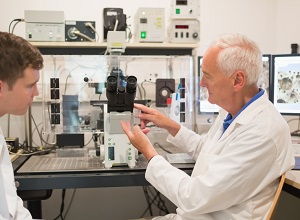Career - Biomedical engineering

Biomedical engineering is a rapidly growing field with enormous career opportunities. Biomedical engineering involves the design and manufacture of tools, materials, structures and processes, aimed at improving human health. New technologies and inventions including nanotechnology and 3D printing as well as massive advances in computing power are contributing significantly to the evolution of this field. Biomedical engineering is often divided into sub-fields including bionics, biomechanics, biomaterials development and tissue engineering, with tissue engineering generating such significant interest over the last decade that it is almost defined as a field of it's own. Tissue engineering aims to repair or replace portions of, or whole tissues such as bone, cartilage, blood vessels, bladders and skin, etc. In order to grow replacement tissues, cells may be seeded onto biodegradable tissue scaffold structures. In the case of repair, tissue engineering strategies often focus on stem cell technologies. With respect to using living organisms to produce biomaterials, biomedical engineering is closely related and in many ways overlaps with the field of biotechnology.
As an interdisciplinary field those with combined qualifications - biological science (human anatomy & physiology, biotechnology, etc), combined with chemistry, computer science, physics and/or mathematics will have the best career prospects. Some universities offer pre-designed biomedical engineering study programs. Other means of acquiring combined qualifications may include Bachelor degrees with double majors, double degrees and Bachelor degree - diploma combinations. Higher research degrees including Honours, Masters and PhD are also good pathways for enhancing ones career prospects in this ever emerging and diversifying field.














